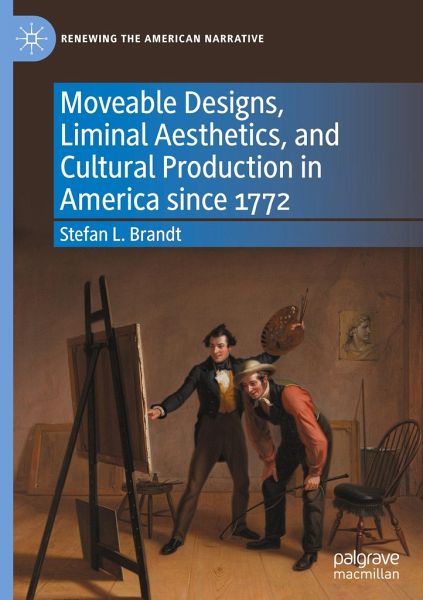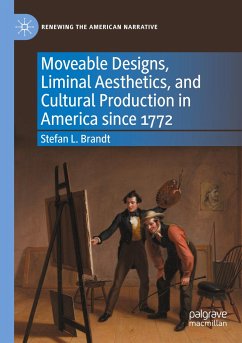
Moveable Designs, Liminal Aesthetics, and Cultural Production in America since 1772
Versandkostenfrei!
Versandfertig in 6-10 Tagen
91,99 €
inkl. MwSt.
Weitere Ausgaben:

PAYBACK Punkte
46 °P sammeln!
The book explores the liminal aesthetics of U.S. cultural and literary practice. Interrogating the notion of a presumptive unity of the American experience, Moveable Designs argues that inner conflict, divisiveness, and contradiction are integral to the nation's cultural designs, themes, and motifs. The study suggests that U.S. literary and cultural practice is permeated by 'moveable designs'-flexible, yet constant features of hegemonial practice that constitute an integral element of American national self-fashioning. The naturally pervasive liminality of U.S. cultural production is the key t...
The book explores the liminal aesthetics of U.S. cultural and literary practice. Interrogating the notion of a presumptive unity of the American experience, Moveable Designs argues that inner conflict, divisiveness, and contradiction are integral to the nation's cultural designs, themes, and motifs. The study suggests that U.S. literary and cultural practice is permeated by 'moveable designs'-flexible, yet constant features of hegemonial practice that constitute an integral element of American national self-fashioning. The naturally pervasive liminality of U.S. cultural production is the key to understanding the resilience of American culture. Moveable Designs looks at artistic expressions across various media types (literature, paintings, film, television), seeking to illuminate critical phases of U.S. American literature and culture-from the revolutionary years to the movements of romanticism, realism, and modernism, up to the postmodern era. It combines a wide array of approaches, from cultural history and social anthropology to phenomenology. Connecting an analysis of literary and cultural texts with approaches from design theory, the book proposes a new way of understanding American culture as design. It is one of the unique characteristics of American culture that it creates-or, rather, designs-potency out of its inner conflicts and apparent disunities. That which we describe as an identifiable 'American identity' is actually the product of highly vulnerable, alternating processes of dissolution and self-affirmation.














